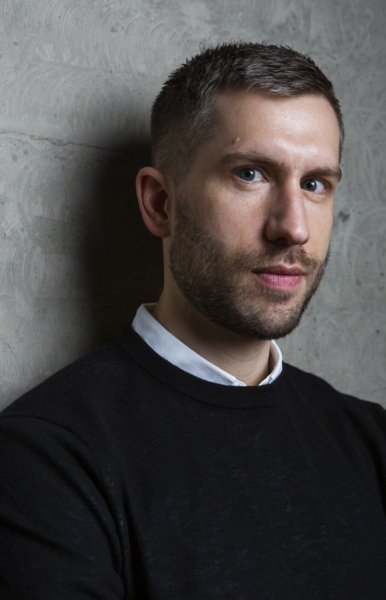He keeps to the deadline
Alexander Rozental put the word procrastination on the map. He is the psychologist and researcher who knows everything about the success factor of not postponing things.

Text: Cecilia Odlind, previously published in Medicinsk Vetenskap no 2 2019.
Penning a long text like the one you are currently reading requires focus. As a writer, I am constantly tempted to postpone my writing in order to take on other, simpler tasks. Answering email, sharing a post on social media, cleaning my desk. When I do, this is called productive procrastination – I am getting a lot of things done, but I am not doing what I am supposed to. But there is no fooling Alexander Rozental. Telling him something vague about sending him this text for review “some time next week” is not good enough.
“What day will you be sending it?” By clarifying the goal, it becomes easier for you to attain it, he explains.
Another tip that he gives me is to divide the assignment into smaller milestones.
“If the value of completing the activity is far in the future, other tasks will be more rewarding in the moment. But by setting milestones, you move the reward forward in time,” says Alexander Rozental.
Believing that you can do it – “I will finish this text and it will be a good one” – is also an important source of motivation.
“If you have been postponing a lot of your tasks for a long time, there is a great risk that you have lost faith in your own ability to deliver,” he says.
In addition we are affected by our own level of impulsiveness.
“If you are easily distracted, remove all distractions.”
Wrote a popular science book
All of these tips are taken from the treatment that Alexander Rozental and his colleagues have developed for people who procrastinate.
“It was while I was training to become a psychologist that I encountered a patient who was having a lot of trouble with procrastinating behaviour. The subject caught my interest and led to me writing a popular science book on the subject together with journalist Lina Wennersten: Dansa på deadline (Dancing on the deadline). In it, we describe the treatment that my colleagues at Stockholm University and I have now evaluated,” says Alexander Rozental.
The results of the studies, which constitute the first major evaluations on this subject, showed that the treatment can reduce the procrastinating behaviour. Group therapy is particularly effective. In addition, the participants had fewer symptoms of anxiety and depression and experienced a higher quality of life. The evaluation was carried out using students, who are also the typical patients.
“Young people between the ages of 15 and 25 are the ones who most often seek help for procrastination. They run into problems when they can no longer carry out their assignments as easily as before, for example when transitioning from upper secondary school to higher education, or from university to work. They do not always have the necessary structure, neither naturally nor from their upbringing,” says Alexander Rozental.
Most people get better
But it is possible to practice these skills, and most people get better at handling deadlines with age. However, some fall into procrastinating behaviour more easily than others; one example is people suffering from what is known as anxious perfectionism. They worry a lot about how their performance will be received, and they therefore find it difficult to finish on time. In this case, the trick is to challenge the notion of what would happen if things do not work out as planned.
“The disaster almost always fails to manifest. And there is time to be saved. The effort required to go from a good level to a perfect level rarely pays off,” says Alexander Rozental.
Another group with increased risk of procrastinating behaviour comprises people with ADHD. This must be taken into consideration when treating the behaviour. But procrastinating can also be due to a lack of initiative and fatigue experienced by people suffering from depression.
“In that case, the patient needs to primarily be treated for their depression.”
In addition to research on procrastination, Alexander Rozental has also worked in a slightly more controversial research field: The unwanted or negative effects of psychological treatment.
“It has previously been argued that conversation therapy can do no harm. However, if the therapy is expected to have positive effects, then it must be powerful enough to risk causing harm. We know that 5–10 per cent of all patients experience a deterioration in their symptoms during psychological treatment.
Temporary discomfort expected
A temporary feeling of increased discomfort as a result of certain treatment elements, such as fatigue during CBT treatment of sleeping problems, is to be expected. But then it should turn around, and the patient should feel that the therapy is lessening the symptoms. However, British research has shown that different therapists have varying degrees of success. Some, whom Alexander Rozental refers to as ‘toxic’, seem instead to aggravate the symptoms. In the studies conducted on the subject, the therapists have used evidence-based methods, but perhaps they are applying the methods incorrectly or they are not getting the correct message across to the patient. Then there are those who are unusually successful, the so-called supertherapists.
“We don’t really know much about what separates these groups. I feel it is important to find out in order to increase the chances of identifying the patients who deteriorate early on and offer them alternative treatment,” he says.
Alexander Rozental is currently planning the next stage: One example would be to carry out in-depth studies where the researchers record therapy sessions in order to analyse exactly what is being said.
Could this not be a somewhat sensitive issue for a therapist to be studied in such detail?
“Absolutely. But most psychologists feel positive about this issue being raised, and they understand the importance of finding out more. Then there are those who are concerned that the focus on the negative effects will deter patients from seeking help,” says Alexander Rozental.

Expectations matter
The chemistry between the therapist and the patient, the interpersonal connection, is an extremely important aspect that can also affect the outcome. The same is true if the patient’s expectations of the treatment differ greatly from those of the therapist.
But what actually yields the effects seen from psychological treatment is a question not easily answered.
“When you study a drug, it is easy to administer a placebo for comparison. But it is much harder to study the placebo effect of psychological treatment. One way that has been tested is to do a comparison with the effects of sessions without any particular structure. It has turned out that for some illnesses, such as depression, many different interventions may be effective. The interpersonal contact alone, where the therapist creates a safe and warm environment, is highly important and can help. In the case of anxiety syndromes, phobias for example, exposure is a very important component of successful treatment, and it is easier to show a clear effect of a specific feature of the therapy,” he says.
In his work, Alexander Rozental is inspired by the American psychologist and behaviourist B. F. Skinner.
“Skinner did not attempt to explain human behaviour based on elusive internal processes, i.e. considering a person to be a certain way. Instead, he was interested in what we can observe in the individual’s behaviour, focusing on how we can work on manipulating the factors that keep a problematic behaviour in place. This is more useful from a clinical treatment perspective, in my opinion.”
Does not procrastinate
His research has made Alexander Rozental more sceptical in general – “at least that’s what my family tells me” – but also more humble to the idea that there is no one treatment that can help everyone. In his work with patients, he also feels that he has gained a greater understanding of human suffering and the enormous variations in our behaviours. But he does not procrastinate himself.
“I am very meticulous and structured; the things I take on get done on time. And I don’t mind doing boring tasks, which is a highly useful characteristic for a researcher!”
Facts about Alexander Rozental
Name: Alexander Rozental
Title: Licensed psychologist and a researcher at the Department of Clinical Neuroscience at Karolinska Institutet.
Age: 34
Family: Married.
How I relax: Running and reading.
Most unexpected research finding: That patients get worse when they’re on a waiting list. It has been previously thought that nothing happens or that some will even get better with time. This is important to know when studying treatments that have already proven effective. Putting patients on a waiting list as a control then becomes an ethical problem.
Alexander Rozental on...
…procrastination
"This is when all tasks are perceived to be of equal priority, and you cannot choose which one is the most important. This risks causing great stress, so it is important to find a balance".
…the importance of being bored
"My mother claimed that being bored is good for you. I also believe that it is important to practice your ability to wait for a reward".
…New Year’s resolutions
"They have an undeservedly bad reputation. Around 55 per cent had kept their resolution a year later, according to our study. The chances of succeeding increased if the resolution was something you wanted, rather than something that you did not want".
…waiting for motivation
"There’s no point. I would rather say that the results of our actions are the source of our motivation. Take a first small step, and the motivation will come along".
